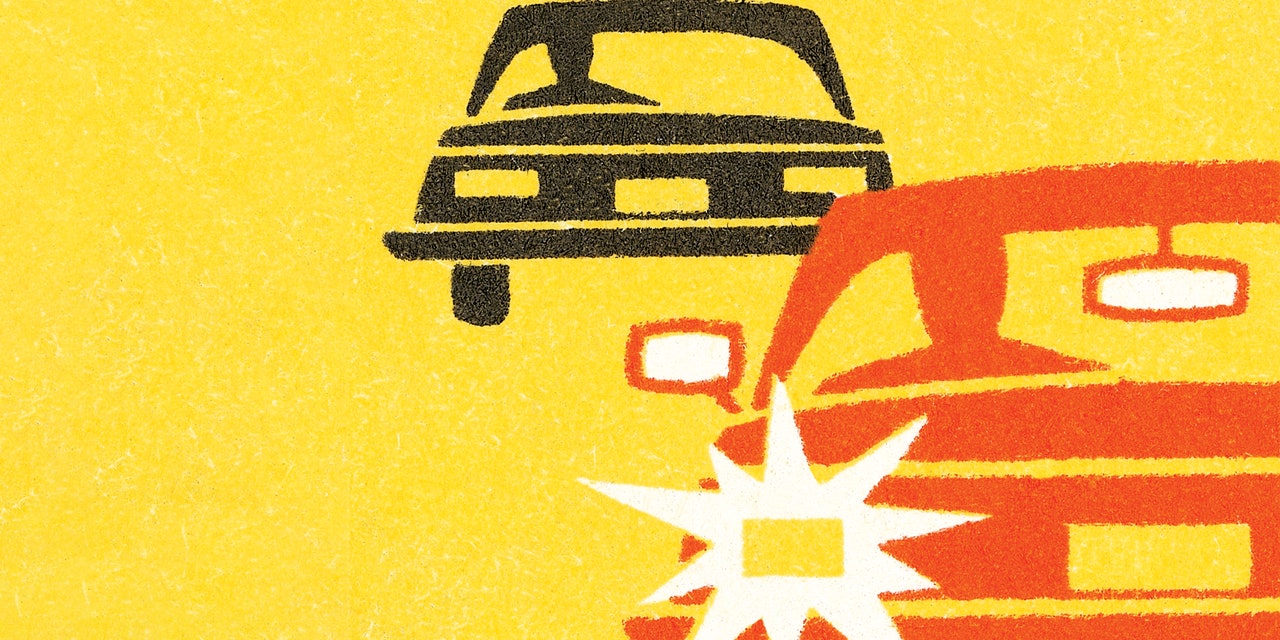As Dr. Thomas notes, even if you’re not proud of your reaction (perhaps you flipped someone off after they tried to brake-check you), it’s hard to fault yourself for a situation you weren’t prepared to be in and, frankly, may have been dangerous to you. “You had a very instinctual response in protecting your niece,” she explains. “Preventing your response is not really the name of the game. It’s figuring out what to do with that response. In a lot of these situations, people tend to deprive themselves of the ability to really process that.”
Dr. Thomas recommends texting a close pal or family member to talk about and further validate the experience—and get it out of your own head. “Your friend can be like, ‘Oh my gosh. That’s crazy. Did you yell at her?’” she explains. “We get that experience of validation so we can truly process the feeling. When we cut ourselves off from that experience, it can be hard to let go.”
Don’t take it personally.
By definition, any interaction between two strangers will be surface-level: They don’t know you, and you don’t know them. “Anything they’ve said is much more about them than you,” Dr. Saltz explains. “When your perspective is that person must be having a bad day, or something is going on with that person because it’s about them, then it’s easier to not have it stick with you in that obsessive, ruminative way.”
Of course, Dr. Saltz acknowledges, someone calling you a bitch from left field can feel understandably jarring—but it’s hard to hear because it’s so surprising. You don’t get called that by friends and family, or people who really know you, she explains.
Dr. Thomas says it’s also important to ask yourself in these situations: Was that attack personal…or are you just taking it personally? “We’re putting character intent on a situational thing,” she explains. “So the guy that cuts you off in traffic, it affects you personally because you just got cut off in traffic. But that person doesn’t know you, they don’t know your situation. It has nothing to do with you per se. It’s not actually personal.”
In doing this—recognizing that you’re having an emotional response to something that has nothing to do with your true character—Dr. Thomas says you gain control. “There are exactly zero humans—or, I don’t know, maybe the Dalai Lama is—immune to being in that state of stress and vulnerability,” she adds.
If you can’t stop ruminating about what went down, know there might be something else going on.
Detaching yourself from the situation, and doing your best to focus your energy on healthy activities, is your best bet following a tough interaction with a stranger. But if you find yourself obsessing over it weeks, or even months, down the road, it might not be a bad idea to talk to a licensed therapist. “Ruminating is a symptom of something larger, like being angry, depressed, or anxious,” she explains. “It can also sometimes signal someone who is rejection-sensitive—they perceive any interaction that doesn’t go swimmingly as their fault. But it’s not. They could probably use some therapeutic help to identify what’s happening.”
Unfortunately, rude people are always going to exist. And as Election Day draws closer, and the world gets even more stressful and sometimes combative, there’s a nonzero chance you’ll have a rough interaction. Just know that the person who dishes out disses to total strangers probably isn’t living their best life. Personally, I pictured the dog lady trekking back to her house and hopefully digging her bare toes into a humongous pile of puppy shit. That may or may not be true, but I’m in control of how I interpret the situation—and that fleeting, petty (and gross) thought sure makes me feel a hell of a lot better.
Related:
